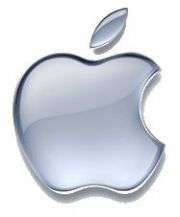Logo Can Make You 'Think Different'

Whether you are a Mac person or a PC person, even the briefest exposure to the Apple logo may make you behave more creatively, according to recent research from Duke University’s Fuqua School of Business and the University of Waterloo, Canada.
In work to be published in the April issue of the Journal of Consumer Research, Professors Gavan Fitzsimons and Tanya Chartrand of Duke, and Gráinne Fitzsimons of Waterloo, found that even the briefest exposure to well-known brands can cause people to behave in ways that mirror those brands’ traits.
“Each of us is exposed to thousands of brand images every day, most of which are not related to paid advertising,” said Gavan Fitzsimons. “We assume that incidental brand exposures do not affect us, but our work demonstrates that even fleeting glimpses of logos can affect us quite dramatically.”
To assess the effects of brands on behavior, the researchers selected two competing brands, both well respected by consumers, with distinct and well-defined brand personalities. “Apple has worked for many years to develop a brand character associated with nonconformity, innovation and creativity,” said Chartrand, “and IBM is viewed by consumers as traditional, smart and responsible.”
The team conducted an experiment in which 341 university students completed what they believed was a visual acuity task, during which either the Apple or IBM logo was flashed so quickly that they were unaware they had been exposed to the brand logo. The participants then completed a task designed to evaluate how creative they were, listing all of the uses for a brick that they could imagine beyond building a wall.
People who were exposed to the Apple logo generated significantly more unusual uses for the brick compared with those who were primed with the IBM logo, the researchers said. In addition, the unusual uses the Apple-primed participants generated were rated as more creative by independent judges.
“This is the first clear evidence that subliminal brand exposures can cause people to act in very specific ways,” said Gráinne Fitzsimons. “We’ve performed tests where we’ve offered people $100 to tell us what logo was being flashed on screen, and none of them could do it. But even this imperceptible exposure is enough to spark changes in behavior.”
Other than their defined brand personalities, the researchers argue there is not anything unusual about Apple and IBM that causes this effect. The team conducted a follow-up experiment using the Disney and E! Channel brands, and found that participants primed with the Disney Channel logo subsequently behaved much more honestly than those who saw the E! Channel logos.
“These experiments demonstrate that most any brand that has strong associations with particular traits could have the capacity to influence how we act,” Chartrand said.
The researchers note practical implications of their work for both consumers and marketers.
“Instead of spending the majority of their money on traditional print and television advertising, companies with established brand associations such as Apple may want to give serious consideration to shifting more marketing resources to product placement opportunities and other forms of outreach that emphasize brief brand exposures,” Gavan Fitzsimons said.
And consumers should be aware that they are susceptible to influences they may not detect and use this knowledge to their advantage. “If you know you need to perform well on some task, say something athletic, you may want to surround yourself with images and brand logos that represent success in athletics,” Gráinne Fitzsimons said.
Source: Duke University





















